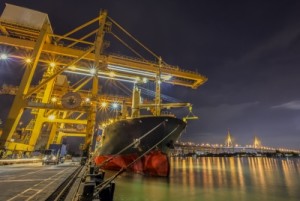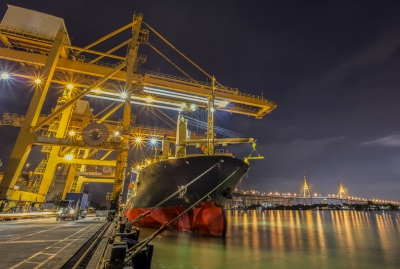 The Chamber of Customs Brokers Inc. (CCBI) is suggesting that the soon-to-be required load port survey (LPS) on containerized cargoes be made voluntary.
The Chamber of Customs Brokers Inc. (CCBI) is suggesting that the soon-to-be required load port survey (LPS) on containerized cargoes be made voluntary.
By middle of the year, the Philippine Bureau of Customs (BOC) will implement LPS on containerized and other non-containerized cargoes. Currently only bulk and breakbulk shipments undergo LPS under Administrative Order AO 234A issued in 2009.
In a letter to Customs Commissioner John Phillip Sevilla dated May 6, CCBI president Joseph Tabirara noted that the voluntary application of the LPS on box shipments would solve the “legal issue” that would arise from the impending issuance of a Customs Administrative Order (CAO) that, in its draft objective, said would “further implement Administrative Order AO 234A”.
CCBI noted a “CAO may not amend an AO”. It explained that amending AO 234A to cover containerized shipments in turn effectively amends Section 1401 of the Tariff and Customs Code of the Philippines (TCCP).
The chamber pointed out that Republic Act 7650 (An Act Repealing Section 1404 And Amending Sections 1401 And 1403 Of The Tariff And Customs Code Of The Philippines, As Amended, Relative To The Physical Examination Of Imported Articles) “was passed when the Comprehensive Import Supervision Scheme (CISS) was in force”. At that time it was government “paying for the services of the surveyor doing the pre-shipment inspection.”
Under the draft CAO on the LPS, however, the cost of the service of the surveyor will be paid by the exporter. This may run “contrary to internationally and judicially accepted International Commercial Terms (INCOTERMS) 2010,” according to CCBI.
Save for Delivered Duty Paid, all buyers’ obligations under INCOTERMS 2010 provide that “the buyer must pay for the cost of any mandatory pre-shipment inspection, except when such inspection is mandated by the authorities of the country of export”, the Chamber pointed out.
The additional cost will be passed on to the ultimate buyer – Filipino consumers, it added.
The cost of the LPS is also still unknown, said CCBI, noting that the cargo surveyor should “provide indicative rates for the different countries (with) which they have representative office(s).
CCBI said “importers must have a cost idea for them to factor into their importation costing”.
The organization said fees for the LPS will add to the many other costs Philippine-based importers face, such as high arrastre fees, arbitrary charges by shipping lines and off-dock warehouses, as well as high trucking costs due to Manila’s daytime truck ban.
These costs will again be passed on to Filipino consumers, adding to their burden, CCBI said.
The group pointed out that the country’s export competitiveness will also be affected by the rise in the import cost of raw materials, which will eventually affect the economy.
CCBI said assuming 1.5 million 20-foot containers (TEUs) per year of total imports are levied a US$100 per TEU survey fee, this would cost importers around $1.5 million or P66.33 billion annually.
“Our ‘guesstimate” is that importers whom we estimate to be 90% of the total population of importers complying with customs regulations on proper declaration will be the party that will shoulder the cost of irregularities committed by around 10% importers of the total population,” CCBI wrote Sevilla.
The LPS will add to the $5 per TEU container security fee that importers are required to pay under Executive Order 252 s. 2006 as amended by EO 263 s. 2007, CCBI pointed out.
CCBI’s long term solution is to subject containers to x-ray examination upon discharge from vessels.
In his meeting with stakeholders on April 29, Sevilla said the BOC hopes the pre-shipment inspection will just be a temporary measure.–– Roumina M. Pablo
Image courtesy of anekoho / FreeDigitalPhotos.net





